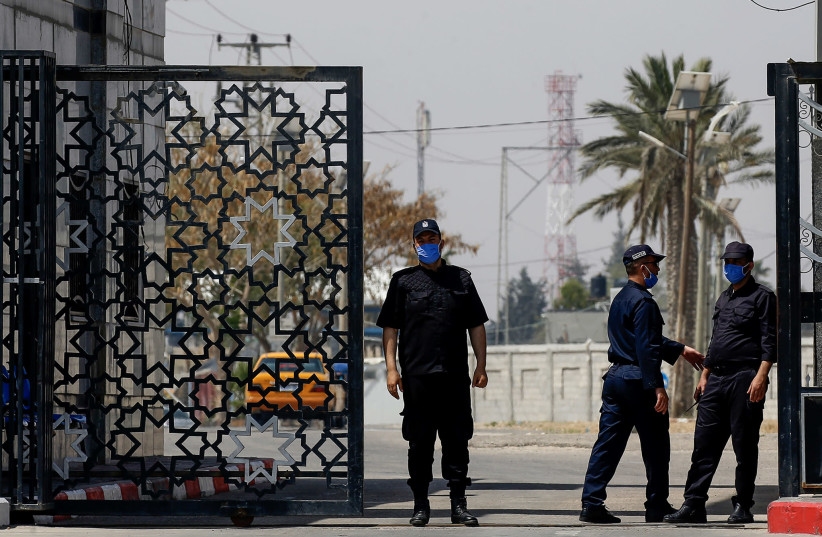The Egyptians are seeking to broker a deal that would allow the Palestinian Authority to resume control of the Rafah crossing between the Hamas-ruled Gaza Strip and Egypt, a Palestinian official in Ramallah said Wednesday.
The terminal, the only crossing point between Egypt and the Gaza Strip, has been under Hamas’s control since its violent takeover of the Gaza Strip in 2007.
After the Israeli withdrawal from the Gaza Strip in 2005, the border crossing was jointly controlled by Egypt and the PA.
The proposed deal was discussed during separate meetings Egyptian officials recently held in Cairo with a PA delegation headed by Prime Minister Mohammad Shtayyeh and leaders of Hamas and Islamic Jihad, the official said.
Shtayyeh reportedly urged the Egyptians to ease restrictions imposed on travelers and goods at the Rafah terminal.

In 2017, the PA resumed control of the Rafah terminal in accordance with an Egyptian-brokered “reconciliation” agreement between the PA’s ruling Fatah faction, headed by PA President Mahmoud Abbas, and Hamas.
Two years later, however, the PA instructed its employees to leave the terminal after accusing Hamas of harassing and arresting some of them.
Hamas unlikely to relinquish control of border crossing, official says
The official said he was not optimistic regarding the possibility that Hamas would cede control of the border crossing in the near future.
The latest proposal is part of a series of measures the Egyptians are planning to improve the economic and humanitarian situation in the Gaza Strip.
The measures include, among other things, increasing trade between the Gaza Strip and other countries. In addition, they include increasing power supply from Egypt to the coastal enclave.
At this stage, it is not clear whether the Hamas leaders who visited Cairo earlier this week have agreed to hand control over the Rafah crossing to the PA. Over the past few days, Hamas accused the PA of stepping up its security crackdown on the group’s supporters in the West Bank.
The crackdown came in the aftermath of the victory of Hamas-affiliated lists in student council elections at the Palestinians’ two most important universities in the West Bank, An-Najah National University in Nablus and Bir Zeit University, north of Ramallah.
The arrests have increased tensions between the PA and Hamas, whose representatives accused the Ramallah-based Palestinian leadership of working toward silencing the opposition.
According to some sources, at least 16 Hamas supporters have been detained by the PA security forces over the past few days.
Some Hamas and Islamic Jihad officials were recently quoted as saying that while they welcome the Egyptian ideas to improve the economic and humanitarian situation, they fear this could create the false impression that the Gaza Strip is an independent and sovereign state.
The officials, however, were careful not to direct any criticism toward Egypt, which last month played a crucial role in achieving yet another ceasefire agreement between Israel and Islamic Jihad, ending five days of fighting, during which more than 1,400 rockets were fired from the Gaza Strip toward Israel. At least 33 Palestinians were killed, including 11 senior Jihad officials, five children and three women, according to Palestinian sources in the Gaza Strip.
The Hamas and Islamic Jihad leaders, Ismail Haniyeh and Ziyad al-Nakhaleh, respectively, held a series of meetings with Egyptian officials, including Abbas Kamel, head of Egypt’s General Intelligence Service, the Mukhabarat. The talks focused on ways of strengthening bilateral ties and enhancing coordination between the two sides, according to separate statements released by Hamas and Jihad.
The Egyptians are also hoping to achieve a long-term ceasefire between Israel and the Gaza-based armed factions, according to reports in Palestinian and Arab media outlets.
